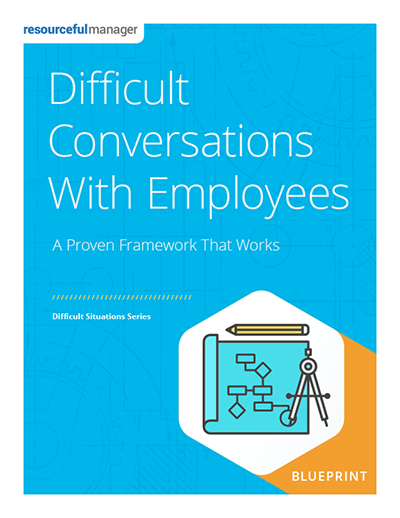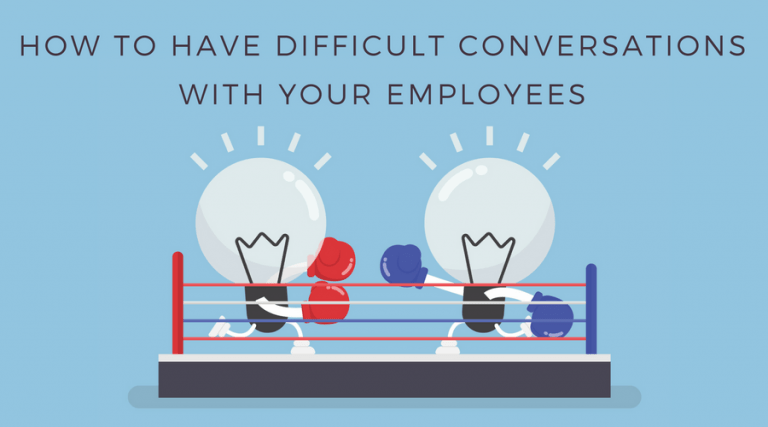Difficult Conversations With Employees

Navigating the complexities of the modern workplace often requires managers to address sensitive issues directly with their employees. These difficult conversations, ranging from performance concerns to behavioral issues, are crucial for maintaining a productive and respectful environment, but also present significant challenges for both parties involved.
Effective communication is paramount, but how organizations approach these situations can have a significant impact on employee morale, retention rates, and ultimately, the company's bottom line. Understanding the nuances and best practices is key to transforming potentially damaging encounters into opportunities for growth and improvement.
The Landscape of Difficult Conversations
Difficult conversations encompass a wide array of topics. These commonly include addressing poor performance, discussing disciplinary actions, delivering negative feedback, resolving conflicts between colleagues, and informing employees about organizational changes that might affect their roles.
According to a 2023 survey by the Society for Human Resource Management (SHRM), nearly 70% of managers reported feeling uncomfortable conducting performance reviews, a common trigger for difficult conversations. This discomfort often stems from a lack of adequate training and resources, leading to avoidance or ineffective communication.
Key Strategies for Effective Communication
Preparation is paramount. Managers should meticulously gather relevant facts and document specific instances before initiating a discussion. This allows for a more objective and constructive conversation, minimizing the risk of misunderstandings or accusations.
Creating a safe and respectful environment is equally critical. Choosing a private location and allocating sufficient time for the conversation demonstrates respect for the employee. Using active listening skills, such as paraphrasing and asking clarifying questions, encourages open communication.
Focusing on behavior, not personality, helps to avoid defensiveness. Frame feedback in terms of observable actions and their impact on team goals or company objectives. Avoid generalizations or personal attacks.
Delivering Negative Feedback Constructively
Delivering negative feedback is arguably one of the most challenging aspects of managing employees. Harvard Business Review consistently emphasizes the importance of balancing negative feedback with positive reinforcement.
The “sandwich method,” where negative feedback is placed between two layers of positive comments, is a popular technique, but its effectiveness is debated. More direct and specific feedback, coupled with clear expectations for improvement, is often more impactful in the long run.
Offering support and resources is crucial. Providing training opportunities, mentorship programs, or access to employee assistance programs demonstrates a commitment to helping the employee improve and succeed.
Potential Pitfalls and How to Avoid Them
One common mistake is delaying difficult conversations. Procrastination often exacerbates the problem, allowing issues to fester and potentially damage team dynamics. Addressing concerns promptly and directly is essential.
Another pitfall is failing to document the conversation. Maintaining a written record of the discussion, including the issues addressed, the agreed-upon actions, and the timeline for follow-up, provides a valuable reference point and helps to avoid future disputes.
Bias, whether conscious or unconscious, can also undermine the effectiveness of difficult conversations. Managers must be aware of their own biases and strive to approach each situation with fairness and objectivity.
“Effective communication is the cornerstone of a successful workplace,” says Dr. Anya Sharma, a leading organizational psychologist. “Addressing difficult issues with empathy and clarity can foster a culture of trust and accountability.”
The Impact on Employee Morale and Retention
How an organization handles difficult conversations can significantly impact employee morale and retention. When employees feel heard and respected, even in challenging situations, they are more likely to remain engaged and committed to their work.
Conversely, poorly managed difficult conversations can lead to feelings of resentment, disengagement, and ultimately, turnover. The cost of replacing employees, both financially and in terms of lost productivity, can be substantial.
Investing in training and resources for managers to effectively navigate these conversations is a strategic investment in the long-term health and success of the organization.
Ultimately, difficult conversations are an unavoidable part of managing people. By prioritizing preparation, empathy, and clear communication, organizations can transform these challenges into opportunities for growth, strengthening relationships and fostering a more productive and positive work environment.

















